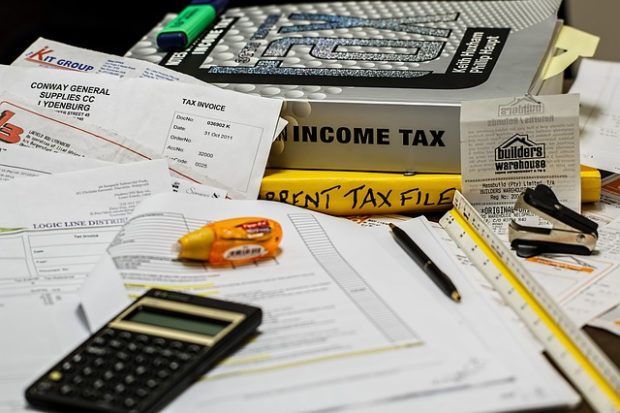Preparing Your Small Business for Tax Season

Tax season can be a stressful time for small businesses considering many of them require the owners or small staff to find a way to handle everything themselves. If this is something that you’re worried about, there are, fortunately, a number of approaches you can take to make your life a little easier.
Finding Professionals
One effective way to make sure that your business is covered for taxes is to locate a tax professional. There are many options out there, but the important thing is to do your research. So, for example, if you were to try a reputable company like Len Stauffenger, Esq., then it would make sense to look at their site and see if their qualifications line up with what you need. You should also look at reviews, what their experience is, and so on.
You might prefer someone who has experience in the field where your business operates. If you can find someone with experience in your technological, medical, or other type of field, it can help you increase your confidence that they will best know how to help you and that you are getting your full money’s worth.
Starting the Process
Of course, one of the first things that you’ll need to do when you start tax season is to pick the right filing. For example, you’ll need to know whether you count as a sole proprietor or a partnership since this is an important distinction. In general, if you don’t know, it’s likely that you are the sole proprietor of your business. However, there could certainly be complications if anyone is helping you with the business that doesn’t count as an employee. This is definitely worth exploring to make sure you get everything right.
Other important questions to ask when you’re getting started with taxes include whether you’ve incorporated, whether you’ve made an LLC, or anything else related to that. You may also want to worry about estimated taxes since this could definitely make your job easier in the future in terms of keeping a handle on everything tax-related.
In general, estimated taxes are calculated quarterly, so it can help to figure them out ahead of time. There are advantages to doing this. You’ll know what you will owe and you can figure out how to handle them long before they are due. It also gives you advantages for an organization. In general, you will likely get the best possible retention of money if you do it this way, and especially if you do it through a professional that you trust to help you.
Potential Write-offs
One important aspect of tax season for your small business is looking at potential tax write-offs. Small businesses often have advantages for writing off expenses that individuals may not have. It’s important to make sure that you pay attention to the different possibilities so that you don’t miss anything. Every potential option should be explored, including expenses in your office, for example. If you purchased office furniture this year, then this might be something you can take a write-off for. If you took business trips, this is another example of something that you might be able to write off.
In fact, you may be able to write off different aspects of the smart parts of your business. One computer may have depreciated, and another might be a new purchase, for example. The important thing is to tick them all off, one by one, using a solid list.
Finding Additional Information
One of the best ways to get additional information is to go straight to the source. The site for the IRS is chock full of information on taxes in general, of course, but it’s also particularly a good source for small businesses. There’s information about taxes related to starting a business, closing a business, self-employment in general, taxes, and being an independent contractor.

